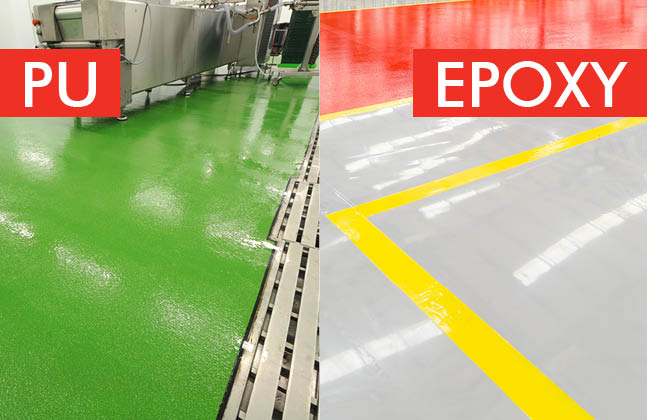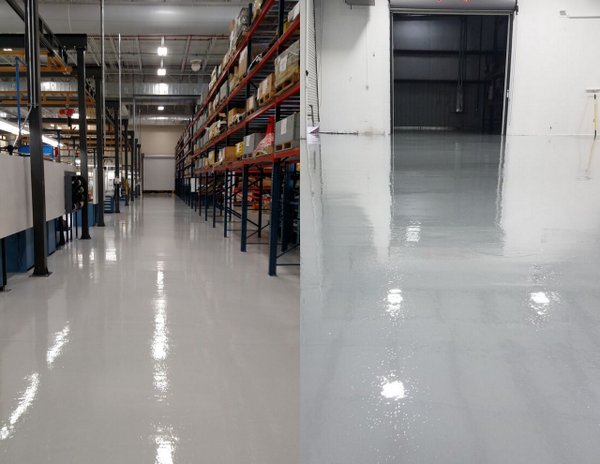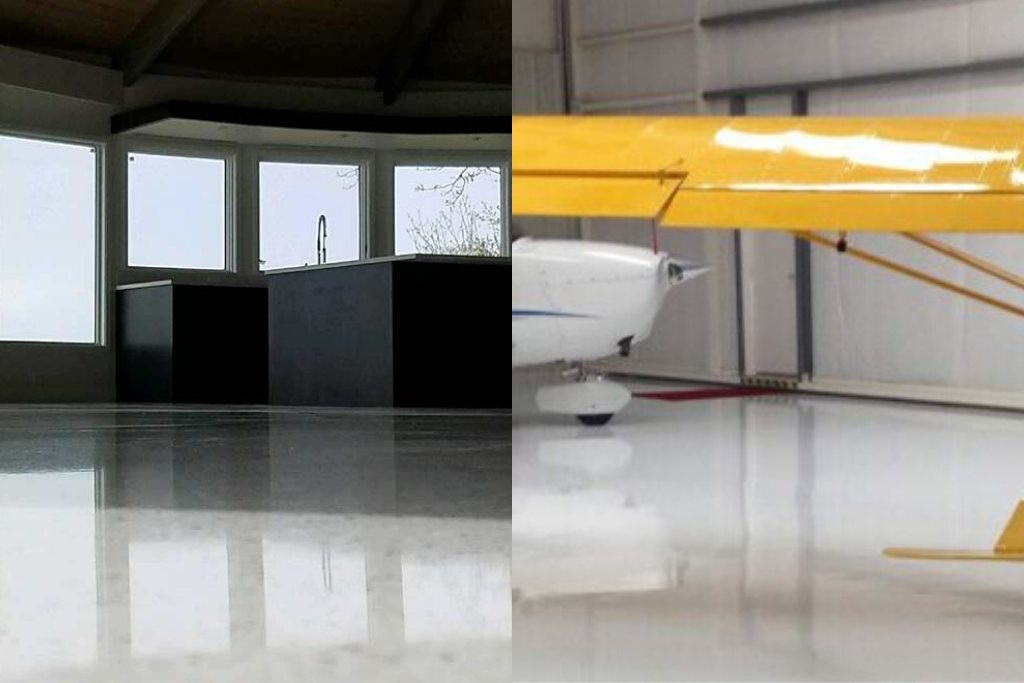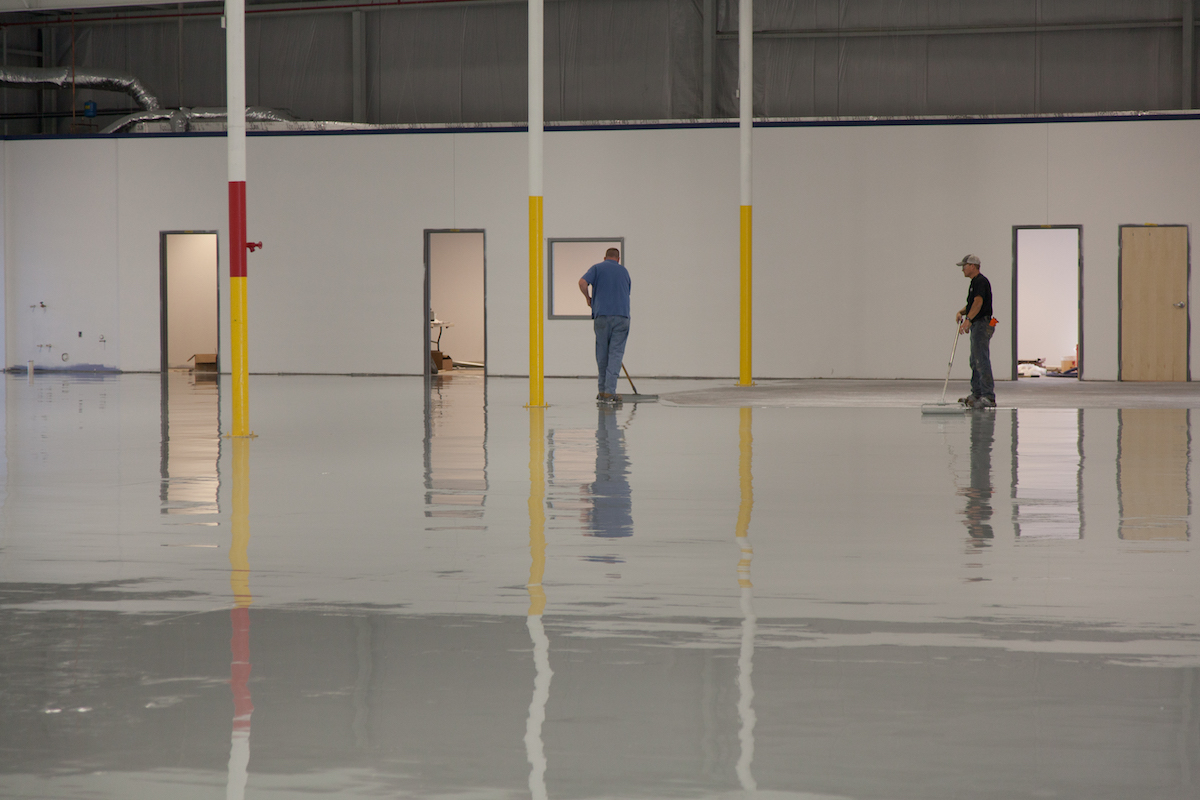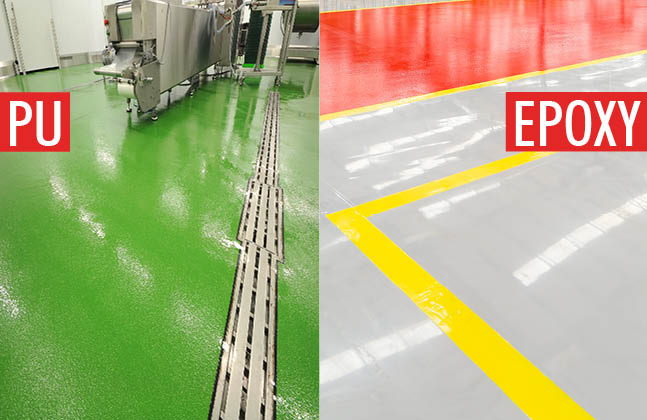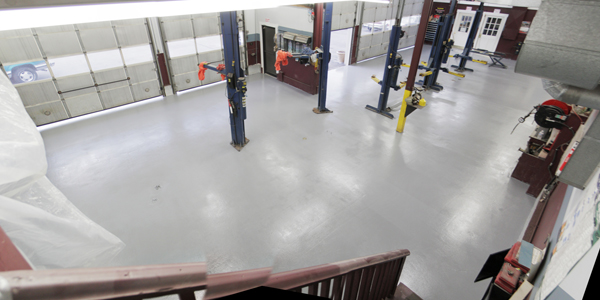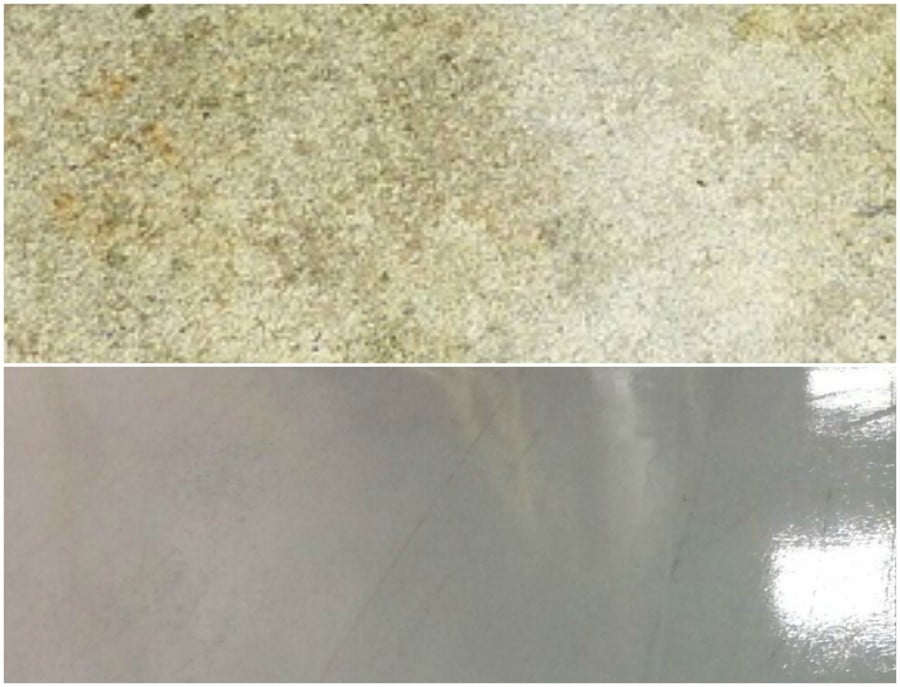Understanding the Differences Between Epoxy and Urethane Floor Coatings
When it comes to choosing the right floor coating for your space, understanding the differences between epoxy and urethane coatings is crucial. Both options have their unique properties and advantages. Let’s talk about the characteristics of epoxy and urethane floor coatings, helping you make an informed decision for your flooring needs.
- Composition and Application: Epoxy floor coatings are typically made of a combination of resins and hardeners. This creates a strong, durable surface that can withstand heavy foot traffic and chemical spills. On the other hand, urethane floor coatings are made from a combination of aliphatic or aromatic polyurethane and a curing agent. Urethane coatings provide excellent UV resistance and are often used in outdoor applications.
- Strength and Durability: Epoxy coatings are known for their exceptional strength and durability. They create a tough, seamless finish that can withstand impact, abrasion, and heavy loads. Urethane coatings also offer great durability and are particularly resistant to chemicals, making them a popular choice for industrial and commercial settings.
- Aesthetic Appeal: Epoxy floor coatings come in a wide range of colors and finishes, allowing you to achieve a polished, glossy look or a more textured appearance. They can also be customized with decorative flakes or metallic pigments for a unique design. Urethane coatings, on the other hand, have a more natural, satin finish that enhances the beauty of the underlying substrate.
- Application Process: The application process for epoxy coatings involves surface preparation, mixing the resin and hardener, and applying the mixture with a roller or squeegee. The coating then needs time to cure and harden. Urethane coatings are typically applied similarly, but they often require additional coats for optimal performance and longevity.
- Cost Considerations: The cost of epoxy and urethane floor coatings can vary depending on factors such as the size of the area, the type of coating, and the level of customization. Generally, epoxy coatings tend to be more cost-effective than urethane coatings. However, it’s important to consider the long-term benefits and durability of each option when evaluating the overall value.
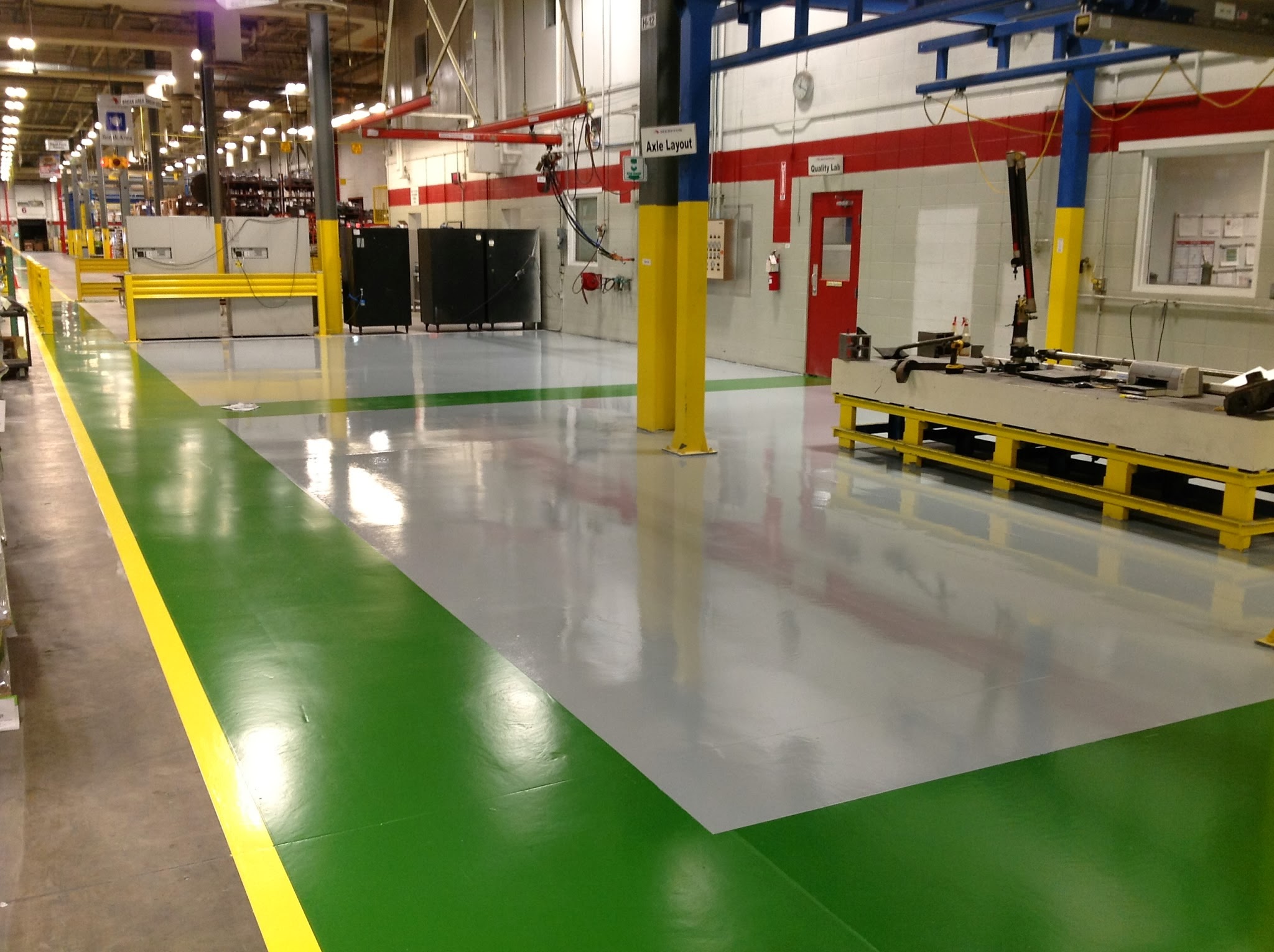
Epoxy Floor Coating: Benefits and Applications
Epoxy floor coatings have gained immense popularity in both residential and commercial settings due to their numerous benefits and versatile applications. We will explore the advantages of epoxy floor coatings and discuss the various areas where they can be effectively utilized.
Durability and Strength: One of the key benefits of epoxy floor coatings is their exceptional durability and strength. Once applied, epoxy coatings create a hard and resilient surface that can withstand heavy traffic, impact, and abrasion. This makes them highly suitable for high-traffic areas such as garages, warehouses, and industrial facilities.
Chemical Resistance: Epoxy floor coatings offer excellent resistance to a wide range of chemicals, including oil, gasoline, acids, and solvents. This makes them ideal for environments where chemical spills are common, such as manufacturing plants, laboratories, and automotive workshops. The chemical resistance of epoxy coatings ensures the longevity of the flooring while also simplifying cleaning and maintenance.
Versatile Design Options: Epoxy floor coatings provide endless design possibilities. They are available in a variety of colors, finishes, and textures, allowing you to create a customized look that complements your space. Additionally, decorative elements like colored flakes or metallic pigments can be added to enhance the aesthetic appeal of the flooring. Whether you prefer a glossy, seamless finish or a more textured appearance, epoxy coatings can be tailored to your preferences.
Easy Maintenance: Maintaining epoxy floor coatings is relatively simple. The smooth, non-porous surface prevents dirt, dust, and stains from penetrating the flooring, making it easy to clean. Regular sweeping and occasional mopping with a mild detergent are usually sufficient to keep the floor looking pristine. This low-maintenance aspect is particularly beneficial for commercial spaces that require frequent cleaning.
Application Areas: Epoxy floor coatings are versatile and can be applied to various areas. They are commonly used in residential garages, basements, and workshops to create a durable and visually appealing flooring solution. In commercial settings, epoxy coatings are often found in warehouses, showrooms, retail spaces, and healthcare facilities. They are also popular in industrial environments due to their resistance to chemicals, impact, and thermal shock.
Urethane Floor Coating: Advantages and Versatility
Urethane floor coatings have gained recognition for their exceptional advantages and versatility in various applications. Here are the benefits of urethane floor coatings and explore the different areas where they can be effectively utilized.
UV Resistance: One of the standout features of urethane floor coatings is their excellent resistance to UV rays. This makes them particularly suitable for outdoor applications where exposure to sunlight is inevitable. Unlike other coatings that may fade or deteriorate under sunlight, urethane coatings maintain their color and structural integrity over time. This UV resistance makes them an excellent choice for outdoor patios, pool decks, and other exterior spaces.
Chemical Resistance: Urethane floor coatings offer exceptional chemical resistance, making them highly suitable for environments where exposure to harsh chemicals is common. They can withstand spills of acids, solvents, oils, and other chemicals, making them suitable for industrial and commercial spaces such as manufacturing plants, laboratories, and chemical processing facilities. The chemical resistance of urethane coatings also simplifies the cleaning and maintenance process, ensuring the longevity of the flooring.
Flexibility and Impact Resistance: Urethane floor coatings have a certain level of flexibility, allowing them to withstand impact and thermal shock. This makes them an excellent choice for areas where heavy objects may be dropped or moved frequently, such as warehouses, workshops, and automotive facilities. The flexibility of urethane coatings also helps to prevent the formation of cracks or fractures, ensuring a long-lasting and durable flooring solution.
Aesthetic Options: Urethane floor coatings offer a range of aesthetic options to suit various design preferences. They are available in different finishes, including glossy, satin, and matte, allowing you to achieve the desired look for your space. Additionally, urethane coatings can be pigmented to create a specific color scheme or enhance the natural beauty of the underlying substrate. This versatility in design options makes urethane coatings suitable for a range of applications, from commercial spaces to residential interiors.
Application Areas: Urethane floor coatings find applications in a variety of areas due to their unique properties. They are commonly used in industrial facilities, warehouses, and manufacturing plants due to their chemical resistance, impact resistance, and durability. In commercial spaces, urethane coatings are often found in retail areas, restaurants, and healthcare facilities where a combination of aesthetics and functionality is desired. They are also a popular choice for residential garage floors, basements, and other areas that require a durable and visually appealing flooring solution.
Factors to Consider When Deciding Between Epoxy and Urethane
When faced with the decision of choosing between epoxy and urethane floor coatings, it’s important to consider several factors to ensure you make the right choice for your specific needs. Here are the key factors to consider when deciding between epoxy and urethane coatings, to help you make an informed decision.
Purpose and Environment: Consider the purpose and environment of the space where the floor coating will be applied. If you need a durable and chemical-resistant coating for an industrial facility or a workshop, epoxy floor coatings may be the better choice due to their exceptional strength and resistance to chemicals. On the other hand, if you require a UV-resistant coating for an outdoor area or a space exposed to sunlight, urethane floor coatings would be a more suitable option.
Traffic and Usage: Evaluate the level of traffic and usage the floor coating will experience. Epoxy coatings are known for their high durability and impact resistance, making them suitable for areas with heavy foot traffic or the movement of heavy machinery. Urethane coatings also offer good durability and impact resistance, but they excel in areas that require a certain level of flexibility, such as spaces where heavy objects may be dropped frequently.
Aesthetic Preferences: Consider the desired aesthetic for the space. Epoxy floor coatings offer a range of design options, including different colors, finishes, and decorative elements. This allows for customization and the creation of visually appealing surfaces. Urethane coatings, while more limited in design options, offer a natural satin finish that enhances the beauty of the underlying substrate. Consider the specific aesthetic requirements and preferences of the space when deciding between epoxy and urethane coatings.
Maintenance and Longevity: Evaluate the maintenance requirements and expected longevity of the floor coating. Epoxy coatings are relatively easy to clean and maintain, requiring regular sweeping and occasional mopping. They also have a long lifespan when properly applied and maintained. Urethane coatings are also low-maintenance but may require additional coats for optimal performance and longevity. Consider the level of maintenance you are willing to commit to and the expected lifespan of the floor coating.
Budget: Finally, consider your budget when deciding between epoxy and urethane coatings. Epoxy floor coatings tend to be more cost-effective in terms of upfront costs, but they offer excellent long-term value due to their durability and longevity. Urethane coatings may have a higher upfront cost but provide additional benefits such as UV resistance and flexibility. Consider your budget constraints and weigh them against the desired features and performance of the floor coating.
Durability and Upkeep of Epoxy and Urethane Floor Coatings
Maintenance and longevity are important considerations when choosing between epoxy and urethane floor coatings. We will examine the durability and upkeep of both types of coatings to help you make an informed decision for your flooring needs.
Durability: Both epoxy and urethane floor coatings are known for their durability. Epoxy coatings create a hard and resilient surface that can withstand heavy foot traffic, impact, and abrasion. They are highly resistant to chemicals, making them suitable for industrial and commercial settings. Urethane coatings also offer excellent durability and can withstand heavy loads, impacts, and thermal shock. They are particularly resistant to chemicals, making them a popular choice for environments where chemical spills are common.
Upkeep and Cleaning: Maintaining epoxy and urethane floor coatings is relatively simple. Regular sweeping or dust mopping to remove loose debris is recommended for both types of coatings. For more thorough cleaning, epoxy and urethane coatings can be easily cleaned with a mild detergent and water. Avoid using harsh chemicals or abrasive cleaning tools, as they can damage the coatings. Both coatings are also resistant to staining, which simplifies the cleaning process.
Longevity: The longevity of epoxy and urethane floor coatings can vary depending on factors such as the quality of the coating, the application process, and the level of maintenance. Generally, epoxy coatings have a long lifespan and can last for many years when properly applied and maintained. Urethane coatings also have a good lifespan, but they may require additional coats over time to maintain their optimal performance. It’s important to follow the manufacturer’s recommendations for maintenance and periodic reapplication to ensure the longevity of both types of coatings.
Repair and Maintenance: In the event of damage or wear, both epoxy and urethane floor coatings can be repaired. Small cracks or chips can be filled and patched using specialized repair kits. It’s important to address any damage promptly to prevent further deterioration. Regular maintenance, such as recoating or applying a topcoat, can help rejuvenate the appearance and performance of the coatings. It’s recommended to consult with flooring professionals for any major repairs or maintenance needs.
Environmental Considerations: When it comes to environmental impact, both epoxy and urethane floor coatings are generally considered safe and environmentally friendly once fully cured. However, it’s important to note that some epoxy coatings may contain volatile organic compounds (VOCs) during the application process. If environmental sustainability is a concern, look for low-VOC or water-based epoxy coatings. Urethane coatings are typically low-VOC, making them a greener option. It’s always advisable to check the product specifications and consult with manufacturers for more information on the environmental impact of the chosen coatings.
Epoxy vs Polyurethane vs Urethane Cement
Epoxy versus polyurethane (PU) self-levelling floor: the
Epoxy vs. Urethane Concrete Floor Coatings
Epoxy vs Polyurethane: The Reason for Different Resins
Epoxy vs Urethane: Which One Is Best for Your Business?
Concrete Sealer Vs. an Epoxy/Urethane Coating
Related Posts:
